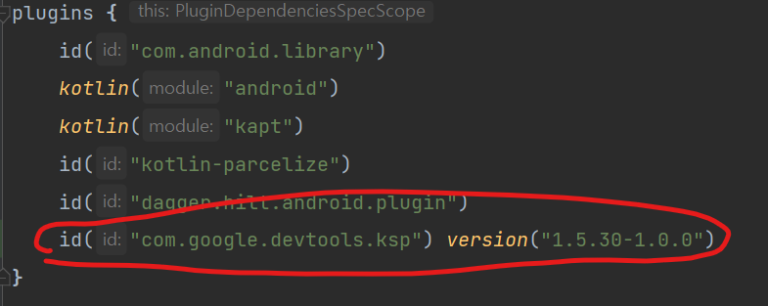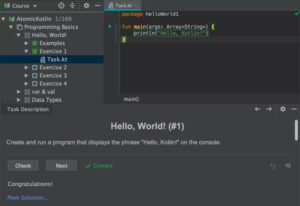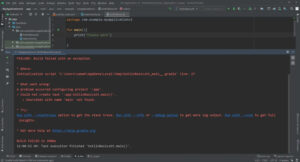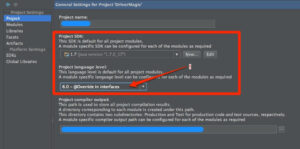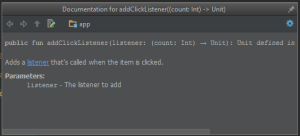Kotlin Symbol Processing (KSP) is a powerful tool that enables developers to generate code at compile time in Kotlin-based projects. It is part of the Google Developers Toolkit (GDT) and is designed to work seamlessly with Kotlin programming language. In this blog post, we will explore the com.google.devtools.ksp library, which is the official implementation of KSP by Google.
What is KSP?
KSP stands for Kotlin Symbol Processing. It is a framework that allows developers to write plugins that generate Kotlin code at compile time. With KSP, developers can analyze and generate code for Kotlin classes, functions, and properties using Kotlin Compiler APIs.
KSP is an alternative to the Annotation Processing Tool (APT), which is a similar code generation tool for Java projects. However, KSP is more powerful and flexible than APT, as it allows for direct manipulation of Kotlin symbols and can generate code that is more efficient and type-safe.
What is com.google.devtools.ksp?
Com.google.devtools.ksp is the official library for Kotlin Symbol Processing provided by Google. It provides the core functionality for processing Kotlin symbols and generating code at compile time.
The library includes a set of APIs that allow developers to write KSP plugins that can analyze and manipulate Kotlin symbols. The APIs provide access to information about the code being compiled, such as the AST (Abstract Syntax Tree) of the Kotlin code, and allow developers to generate new code based on this information.
The library also includes a set of tools and utilities for working with KSP, such as a command-line interface for running KSP plugins and a Gradle plugin for integrating KSP into Gradle-based projects.
How to use com.google.devtools.ksp?
To use com.google.devtools.ksp in your project, you need to add it as a dependency to your build system. If you are using Gradle, you can add the following lines to your build.gradle file:
repositories {
google()
}
dependencies {
implementation "com.google.devtools.ksp:symbol-processing-api:<version>"
}
Replace <version> with the latest version of the library.
Once you have added the dependency, you can start writing KSP plugins. A KSP plugin is simply a Kotlin library that includes a set of functions annotated with the @SymbolProcessor annotation. These functions are called by the KSP framework at compile time, and they can analyze and manipulate Kotlin symbols using the APIs provided by the com.google.devtools.ksp library.
Here is an example of a simple KSP plugin that generates a new Kotlin file containing a function that returns a constant value:
@SymbolProcessor
class MyProcessor : SymbolProcessor {
override fun process(resolver: Resolver) {
val fileSpec = FileSpec.builder("com.example", "Generated")
.addFunction(
FunSpec.builder("getValue")
.addModifiers(KModifier.PUBLIC)
.returns(Int::class)
.addStatement("return 42")
.build()
)
.build()
val file = resolver.createNewFile(
Dependencies(false),
"com.example.Generated"
)
file.bufferedWriter().use { writer ->
fileSpec.writeTo(writer)
}
}
}
If you are working on a Kotlin-based project and need to generate code at compile time, KSP and the com.google.devtools.ksp library are great tools to have in your arsenal. KSP allows you to analyze and manipulate Kotlin symbols directly, giving you greater control and flexibility in your code generation process.
With com.google.devtools.ksp, you have access to a powerful set of APIs and tools that can help you write KSP plugins more easily and efficiently. Whether you need to generate simple boilerplate code or complex logic, KSP and the com.google.devtools.ksp library can make your life easier and your code more efficient.
In addition, KSP and com.google.devtools.ksp are constantly being updated and improved, with new features and optimizations being added all the time. By keeping up with the latest developments in KSP and using the com.google.devtools.ksp library, you can stay on the cutting edge of code generation in Kotlin.
In conclusion, if you’re a Kotlin developer looking for a powerful and flexible tool for generating code at compile time, KSP and the com.google.devtools.ksp library are definitely worth exploring. With their ability to analyze and manipulate Kotlin symbols directly, KSP and com.google.devtools.ksp can help you write better code faster, while also giving you greater control and flexibility over your code generation process.

